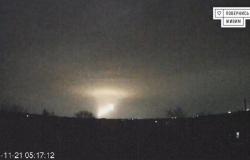The gas transit contract between Russia and Ukraine, signed for a period of five years, expires at the end of 2024. This transit allows Europe to receive Russian gas via Ukraine despite the war context, notably through the Sudzha interconnection point. However, the continuation of these deliveries now depends on an agreement between European buyers and the Ukrainian government.
Alexander Novak, Russian Deputy Prime Minister, expressed Russia’s readiness to continue transporting gas to Europe via Ukraine, but he clarified that decisions no longer depended solely on Moscow. “We are ready to supply [le gaz]although this does not depend on us. Agreements must be established directly between European consumers and the transit country,” he said.
The challenges for Europe
The cessation of transit could affect many European countries still dependent on these deliveries. Among them, Austria and Slovakia are among the main beneficiaries of this transit. Companies like OMV in Austria and SPP in Slovakia anticipate the possibility of compensating these volumes with other sources in the event of an interruption. However, Slovakia is actively advocating for new agreements to be put in place to ensure transit through Ukraine continues, not only to secure its supply, but also for the substantial revenues generated by its status as a transit country to other countries. other nations.
Ukraine’s opposition
Despite the European demand, Ukraine remains firm in its position not to extend the current agreement with Russia. Ukrainian Prime Minister Denys Shmyhal said in October 2024 that kyiv was not considering an extension of this agreement, citing the need to gradually reduce European countries’ dependence on Russian gas. Ukraine intends to diversify its energy supply, despite the impact that a stop in transit could have on countries like Slovakia.
Effects on energy prices
Uncertainty around Ukrainian transit has influenced gas prices in Europe. Delivery contracts for January and February 2025 record higher rates than for other periods on the TTF (Title Transfer Facility) trading curve until 2030. The TTF contract for January 2025 was valued at €40.67/ MWh at the beginning of November, signaling market concern over the possibility of an interruption in these flows.
Potential alternatives and prospects for cooperation
Discussions have taken place between Azerbaijan, Russia and Ukraine to explore the possibility of facilitating the transit of Azeri gas through Ukraine. Azerbaijani President Ilham Aliyev has expressed cautious optimism about the negotiations and hopes for a breakthrough. In addition, Naftogaz, the Ukrainian national company, is considering two scenarios: either a total cessation of Russian flows, or an alternative model where other suppliers could take care of the EU’s needs. One of the conditions would be that gas from Socar, an Azerbaijani company, be stored in Ukraine.
The volume of Russian gas transiting through Ukraine has fallen drastically in recent years, from 117 billion cubic meters in 2008 to just 14.65 billion in 2023, illustrating the decline of this historic corridor for Russian gas in Europe.





